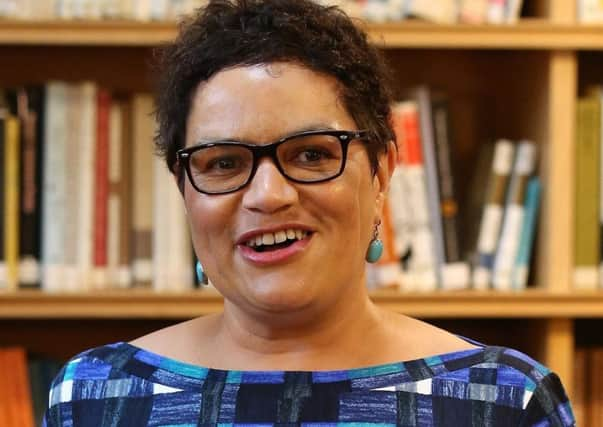Review: the StAnza Poetry Festival, St Andrews


In this, the 20th StAnza, there was a sense of a festival which knows what it’s about, delivering a mixture of well-known names and ones who might be new to us, many of those from overseas. And there was an engaged and eager audience, with many events sold out and main events at the Byre beamed upstairs to an overspill venue on video link.
A theme of travel echoed through the programme (On The Road is one of this year’s festival themes). Trindad-born Vahni Capildeo was, less than a week ago, at the carnival there. Philippino-American Ron Villanueva is en route from London to Brooklyn, while French writer and performer Aurelia Lassaque came via Macedonia, where festival director Eleanor Livingstone heard her perform last year.
Advertisement
Hide AdWith international guests came international perspectives. Syrian poet Maram Al-Massri now lives in France, but writes directly and movingly about her home country in her recent collection Liberty Walks Naked. This is a poetry of bombs and wreckage and refugee camps, not lyrical or contemplative but charged with a message for the world: Al-Massri writes of Liberty, “slash her throat, you will not stop her song”.
It was Seamus Heaney who wrote that “no poem has ever stopped a tank”, but poetry does become more, not less, important in troubled times. Poet and translator Sasha Dugdale, giving the StAnza Lecture on Thursday on ‘Translation, Language and War’ spoke of poetry as “a machine which doesn’t dissipate into history”. She affirmed that the next day, reading her own work, with her long poem, ‘Days’, inspired by the work of Nobel Prizewinning journalist Svetlana Alexievich on women in the Second World War, but rich with much more immediate resonances.
She spoke of translation, particularly her work on Ukrainian playwright Natalia Vorozhbyt, whose recent work concerns the war in that country, which drags bitterly on though it has long since been dropped by the world’s news agenda. Translation, she said, is not simply a matter of language, it is about reimagining the events of the poem or play in one’s own country and context so that the work can speak to us equally vividly.
Paul Stephenson, writing in Paris in the days immediately after the Bataclan terrorist attacks, was surprised at first that he had something to say in poetry about the events. His pamphlet, The Days That Followed Paris, captures the atmosphere in the city at that time, a mix of fear and defiance. He poem simply listing the names of the dead is a thing of beauty and power.
Meanwhile, the situation in Scotland was not neglected. St Andrews’ own Robert Crawford read mainly from his 2014 collection, Testament, published on the eve of the independence referendum. While many of the poems specifically addressed that context, in March 2017 they appear not out of date but shining anew in a fresh light.
The same was true of Jackie Kay’s poem, ‘Threshold’, written for the opening of the Scottish Parliament building, with its emphasis on welcoming refugees sounding more pertinent than ever. Another of her poems, ‘Extinction’, written to poke fun at Nigel Farage, takes on – post-Brexit, post-Trump – a much darker and more urgent vision than she first intended of all that we stand to lose.
Advertisement
Hide AdThis festival included a significant number – perhaps the largest in StAnza’s history – of foreign language writers reading with their translators as part of the main programme. It’s a bold move, but paid off, thanks to the strength of the performances which had a lyrical power whether or not one understood the language: Catalan Joan Margarit, Frenchman Jacques Darras, and Lassaque, who sings as well as speaks her poems, in French and the Provencal dialect, Occitan.
And there were outstanding performances from British poets: Kathleen Jamie, on home ground at St Andrews, demonstrating her assured contemporary lyrics (her most recent award-winning collection, The Bonniest Companie, was written not to address the independence referendum, but inspired by its energy) and Sarah Howe, whose first visit to StAnza six years ago was in a new writers’ showcase, returning this year with a powerful performance from her TS Eliot Prize-winning first collection, Loop of Jade.
Advertisement
Hide AdAnd Alice Oswald, one of the most hotly anticipated readers of the festival, who is both an outstanding poet and a mesmeric reader of her work, inhabiting the words with quiet intensity. Her subjects are not apparently large or timely – rain, a dead badger, a broken figurine – but her themes are life, death, the nature of being, and her way with language deft, surprising, always fresh. In a festival with many high points, her reading was surely the highest.